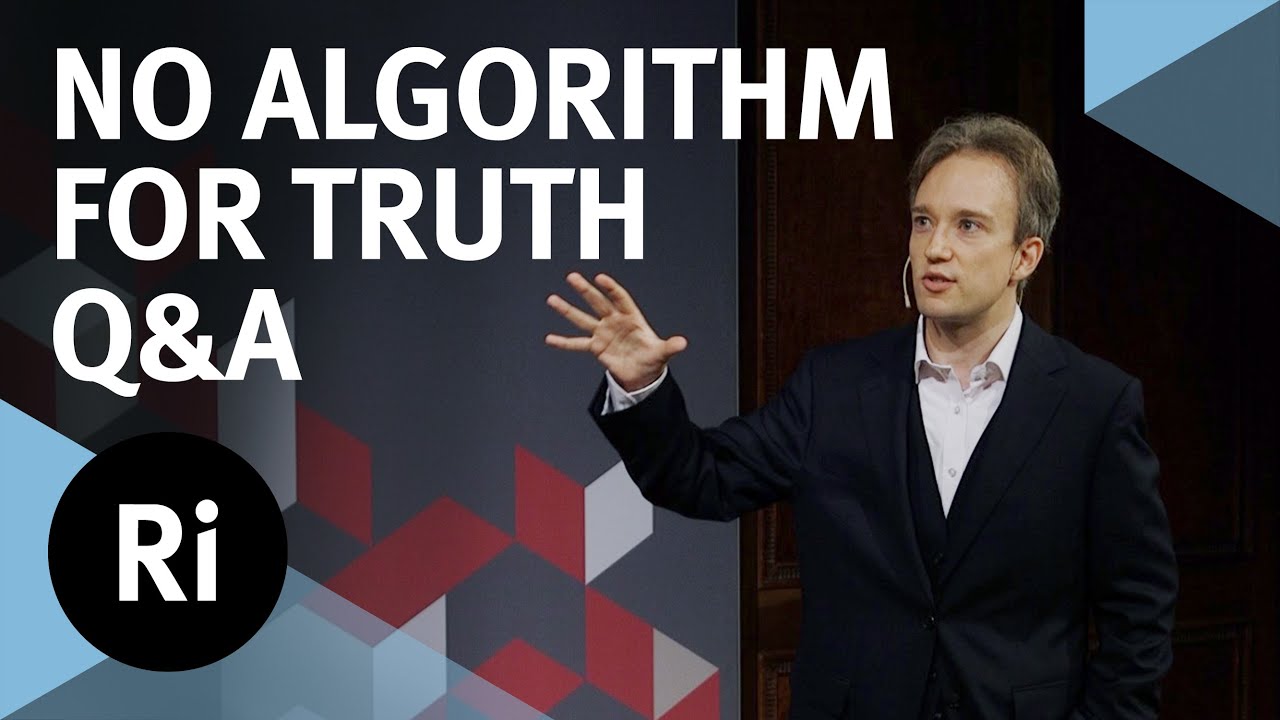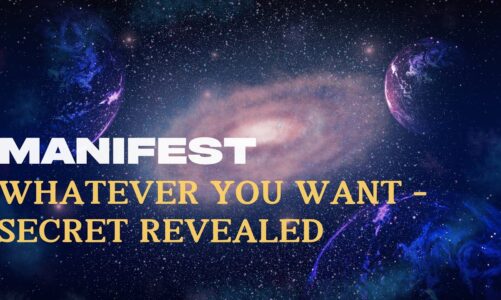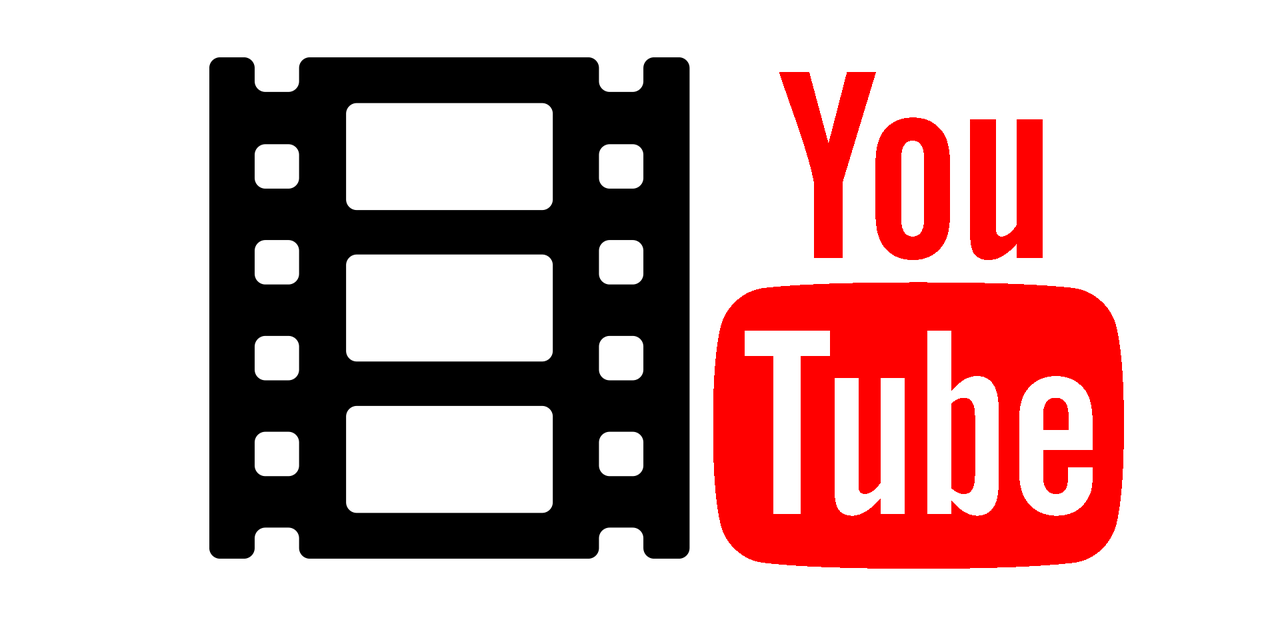The Royal Institution
How do you avoid bias when building an online platform? Is radicalisation driven by echo chambers or places with no regulations on free speech? Tom Scott answers audience questions following his talk.
Watch the talk: https://youtu.be/leX541Dr2rU
Tom Scott is a British entertainer, educator, YouTuber, web developer and former presenter of ‘Gadget Geeks’ on Sky One. He graduated from the University of York with a degree in linguistics. He has a popular YouTube channel with over 1.6 million subscribers and more than 325 million video views as of June 2019.
This talk and Q&A was filmed in the Ri on 27 September 2019.
—
A very special thank you to our Patreon supporters who help make these videos happen, especially:
Andrew McGhee, Dave Ostler, David Lindo, David Schick, Erik Shepherd, Greg Nagel, Jan Bannister, Joe Godenzi, John C. Vesey, Kellas Lowery, Lasse T. Stendan, Lester Su, Osian Gwyn Williams, Paul Brown, Radu Tizu, Rebecca Pan, Robert Hillier, Robert Reinecke and Roger Baker.
—
The Ri is on Patreon: https://www.patreon.com/TheRoyalInstitution
and Twitter: http://twitter.com/ri_science
and Facebook: http://www.facebook.com/royalinstitution
and Tumblr: http://ri-science.tumblr.com/
Our editorial policy: http://www.rigb.org/home/editorial-policy
Subscribe for the latest science videos: http://bit.ly/RiNewsletter
Source



I wish my answers were a bit less hedged here — but nevertheless, thank you to the lovely audience at the RI!
I think requiring specific demographics for a job could lead to bad things. I'm not sure how so, but it's something that worries me.
That's the mark of the true scientist, no matter their background: Being honest about what they don't know and curious about the answers they don't have. Neil DeGrasse Tyson could learn a thing or two.
it was dan rather on cbs who was fooled
Having a Q&A is kind of interesting. Obviously Tom is well researched, but he's still not an expert?
"If there is a user ID attached to a user, a discussion tends to become a criticizing game. On the other hand, under the anonymous system, even though your opinion/information is criticized, you don't know with whom to be upset. Also with a user ID, those who participate in the site for a long time tend to have authority, and it becomes difficult for a user to disagree with them. Under a perfectly anonymous system, 'it's boring', you can say, if it is actually boring. All information is treated equally; only an accurate argument will work." –Hiroyuki Nishimura
Well done Tom, Great Discourse!
Hello, my name is Andrew and here it is.
(unifying theory + key to darm matter adn fater the light communcation)
i want to share with you, something i wasted my time on. The “First rule” of this universe.
Eh…. it sound strange, but stay with me for a second. It deep, it really deep.
This rule is – when energy exchange between two relative points occur, it happens along the path of least resistance. Everywhere, every time.
The depth here – everywhere, every time. Even in black holes, the guide for evolution, for human behavior, every energy exchange, every time.
Understanding this depth allow me to predict tomorrow much more precisely.
Just think about it, how you move through your life, how the brain works. the behavior of animals and insects, any science. This rule in the core of absolute all.
No one else can show it to you now.
I want to shout about it from the highest bell tower! It will help people to move forward!
(energy exhcange speed between two relative point are alwayse the same, wevery where every time. (and it is a light speed most likely))
a key to dark matter or no time for energy exchange
short version
Energy exchange limit or limit for two point to interact.
it is a bit hard to write down this thought for me.
if two points have relative speed more then speed of light, they not able to interact.
but they can interact through the third point. (exactly like dark matter)
1)You know how space can expand faster then light? And it also can curve?
soo, it most likely can curve true it selfe. and this how it not interacting with it selfe.
(in black holes space curveture length is extremely small)
2) How many time need for Sun to exchange energy with you? soo every energy exchange take some "time".
There for if two point have speed difference more then C, they will have no "time" to exchange energyx, have no "time" for exchange to occure.
Even if they will share same place.
also you may see it as, FLT parts in more then one place at a "time" compare to us. For FLT part we in less then one place at "time". (why mass go up)
it more about interaction limin then about speed of light.
can be tested, if we will represent a third point.
long version
-dark matter in our galaxy, (most likely particles emitted by central black hole)
is particles that moving faster than light. (most likely you do not "belive" in this)
if i assume it is correct, then big amount of hydrogen on edge of galaxy, is where this "dark matter particles" decay after losing speed. (decay like new particles from hadron collider)
-parts of dark matter alredy found, but we do not about it. (perseption(particles from hadron collider))
-particles found with hadron collider behave like a dark matter after loosing speed.
-most likely there is a energy exchange speed limit in betwen two points (not sound speed),
most likely it is a speed of light. (that about why we do not see dark matter, but see it interction with other(slower for it/faster for us) particles)
-particles from hadron collider will be stable if placed in faster then light speed.
whant to tell more, I hope this is enough to contact me.
the key is a energy exchange speed limit
(i want my Nobel for showing you dark matter)
Best regards Dynin A.I.
If you require companies to not 'let the Nazis in', the problem then occurs as to WHO defines who are the Nazis (or people you don't want to let speak). The right-wingers don't want the left to have their voice amplified and vice-versa. Reddit had the right idea. Right or wrong, just kick the ones that are making it harder to run the place.
*applauding*
This talk and the Q&A session has been utterly amazing, I literally devoured it for the past hour.
The danger of deep fakes as I see it is not that it will be easier to convince people of lies. But rather that it will be more difficult to convince people of the truth.
Ditch recommendation systems. Return to organic search, and force people to find their own stuff. Has anyone else noticed how nobody uses search anymore? Facebook is full of people asking the same inane questions over and over, without having ever tried a 10 second google search. The old internet was not like this, and people got spanked for not 'searching before posting'. What changed?
Two minute papers???
Sponsored by Mitsubishi?
A great presentation and Q&A. There are so many pit-falls in "the algorithm" that a big worry for me is consolidation. If there are dozens of platforms, each with their own moderation, we are better protected than if we are limited to 2 or 3 big platforms with advertiser-moderated content. You discussed 'advertiser moderation' in the sense of the algorithm trying to maximize revenue, but we also see advertiser/investor moderation when the advertisers pull ads due to allegedly offensive content or the investors (say, China) impose their own censorship based on their ownership of the platform. With the global reach of a small number of platforms, we could end up with a least common denominator of inoffensiveness that goes against every western value of free speech, rather than the echo chamber or noise overpowering information scenarios.
Indeed it has been when Tom exhibits his inordinate depth of thought that I find his work most interesting and inspiring.
He doesn't share anything new. If he just not that knowledgable or am I very knowledgable?
This really nicely covers how the spread of information and authority works online. Felt like I learnt a lot! As a content creator with an audience online I have to be careful to not create unhealthy "parasocial relationships". This means focusing on helping people become a fan of my work more than just a fan of me.
so the answer is quota systems and affirmative action…..good luck.
0:50 Well no one's laughing now!
Humanity is an echo chamber for humanity. But at least it represents all relevant parties as humans.
But big topics in small groups? That is where an echo chamber becomes an echo chamber, for better or for worse.
That's why I like Scott. He's the only public guy I know that never reaches a conclusion and never has an answer. He simply shotguns all the variables and let's us decide. He may well and probably does have an opinion of his own but he never shares it with the viewer. Too many people think they know the answer and get betrayed by their own knowledge and expectation
Oh my goodness, this reminds me of the exhibition in the Barbican, "Apple to Anomaly", where it's lots and lots of pictures from a search engine that are "related pictures". From a single picture of an apple, the search engine recommended pictures with key words until it got to politically charged words like "Traitor" and pictures related. It was so so interesting (and one of the words was "rat" so it was just cute pictures pf rats).
An interesting legal avenue is mandating that corrections have the same prominence as falsehoods.
In the U.K. we’ve been swayed towards nationalism by a sustained campaign of factually inaccurate front pages, with easy to miss corrections buried later on. It seems crazy that this is legal, given its impact on our democracy.
I wish they would block anything to do with a rainbow flag or LGBT stuff in Canada. Turkey gets all the breaks
Good public speaking skills are impressive to me
I can't say i agree with the statement that they have a moral imperative to not let the Nazis in. Feels like saying phone companies have a moral imperative to not let Nazis use phones to talk to people. Like even if they could do it i wouldn't want them to. Even if not for the Nazis then for the people afraid their views will be labelled nazi so don't speak out.
It was just one comment but i think it's the core of the problem with modern moderation. People feel they have a responsibility to stop reprehensible speech, but we don't. At least not on the large scale. On the small scale you might have a responsibility like when you're curating something or making a space that can only exist with strict moderation. But Reddit allowing horrible subreddits doesn't damage the spaces in other subreddits and it's not like they're curating which subreddits can exist. In contrast the royal institute is curating who gets to give a talk there and they have a responsibility to only allow people who have something worthwhile to say.
This comment is for the algorithm…
…is something I often say to support content producers that I like.
We need an the 10 debate standards/rules used in the programs.
@The Royal Institution , There is a blatant Mitsubishi logo in the middle of your backdrop. Please fix.
Thank you Tom Scott for your work and your inspiration.
Typical remainer.
Echo-chambers and radicalism are just two sides of the same coin, as was stated in the presentation, which is essentially our tribalism coming to the forefront. If we want to mitigate the damage those kinds of groups do, or to prevent them in the first place, the education of the people to become self-aware of those instincts needs to be an actual focus, and not something you gain knowledge in because of your personal experiences or motivation to be a better person. If the knowledge of who we are is front-and-center, then there should be no need for such extreme tribalism, but I sincerely doubt we'll ever be rid of it, because it is so ingrained within us as a species.
It appears to me, that the need for critical thinking in society, is desperately needed more now, than ever before.
Matt Parker tosses coins and spills water on Faraday's desk and now Tom is sitting on it?
The worlds gone mad!
Love you really Tom
7:07
The USA had or has an Affirmative action law or programs when I was a child in the 90's. I think it started in the early 70's or 80's
So there should be a lot data on it.
What are you talking about when you speak of Echo chambers
Tom in the full talk: Mostly serious, mildly indimidating, science talk
Tom in the Q&A: A small man sitting on a huge ass desk and talking
14:02 Todd Rodgers has entered the chat
This just might be the best, and most most troubling, RI talk I've watched to date. You paint a frightening picture, but one it's better to be aware of. Thank-you.
[echo – or no boundary]…no boun. is a problem from the point of which it functions from a side but younger/older people find it, from there, what does that mean?…echo is a problem because it will confuse the [enemy] incredibly hard and fairly, only for a moment, then promptly go in the other direction